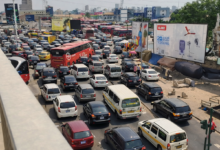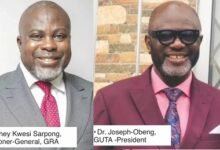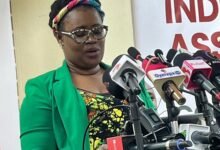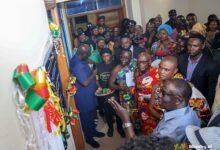
The Institute of Economic Affairs has urged the government to take bold and innovative measures to mobilise resources and allocate them judiciously to support long-term sustainable growth.
This, it said, was capable of delivering sufficiently-high living standards to Ghanaians and moving the country out of poverty within a generation.
In its expectations of the 2022 Budget and Economic Planning, the IEA said “Ghana has a serious challenge with domestic resource mobilisation. Year after year, domestic revenue falls short of budget targets. Meanwhile, the revenue targets themselves are also not sufficiently ambitious vis-à-vis the country’s needs.”
“The consequence of failing to raise enough domestic resources is that we have to resort to borrowing, which has caused our debt to continue to mount. Using the 2021 budget as an example, tax revenue and total revenue were projected at ¢56 billion ($9.7 billion) and ¢72 billion ($12.4 billion) respectively. These figures are small when juxtaposed with our huge economic and social needs. Measured as ratios of GDP, which are usually used for international comparisons, tax revenue and total revenue were 12.7 percent and 16.5 percent respectively”, it stressed.
Furthermore, it pointed out that ‘we must admit that Covid-19 has adversely affected revenue generation. However, even before Covid-19, our revenue performance was very much similar to that of 2021. When we compare our revenue performance with that of our middle-income peers (MIPs), we see that we significantly fall short. The average tax revenue/Gross Domestic Product and total revenue/GDP ratios for Ghana compare unfavourably with our MIPs’ average of about 25 percent and 30 percent respectively.”
It proposed actions needed to be taken to scale up domestic resource mobilisation to support development.
They include addressing illicit financial flows, review of tax exemptions, eradication of tax fraud, among others.
On resource allocation, the IEA said the distribution of expenditure was clearly imprudent, injudicious and inefficient.
“For Ghana, the government expenditure is grossly skewed in favour of recurrent expenditure, popularly referred to as ‘consumption expenditure,’ and at the expense of capital expenditure (CAPEX), which is needed for growth. In the 2021 Budget, recurrent expenditure was projected at 20% of GDP, while CAPEX was projected at 4% of GDP. The ratio of CAPEX-to-GDP is unacceptably low. Indeed, as a developing country, we should be allocating 10-15% of our GDP to CAPEX. That is what will allow the economy to grow and move the country quickly up the development ladder, ”the economic and policy think tank noted.
In terms of tax revenue, compensation absorbed 58 per cent and interest 56 per cent. This means that, together, compensation and interest constituted 114 percent of tax revenue. The implication is that tax revenue could not even fund compensation and interest and that government has to borrow to top up in addition to funding all other government expenditure related to transfers, goods and services, and CAPEX.
“Certainly, serious expenditure rationalisation and rebalancing is called for”, the IEA prescribed.
The issue about public debt service burden is also a major concern expressed by the economic and policy think tank.
This year, it is projected that as much as 56% of tax revenue would be used to pay interest on the country’s debt. This level of debt service, the IEA, said poses risks for fiscal sustainability and the country’s sovereign rating.
It therefore recommend measures such as debt ceiling and fiscal consolidation to deal with the debt risk on a more lasting basis.
For debt engineering, it said the debt could be restructured or refinanced, some of which was being already undertaken, to lengthen the maturity profile and replace more expensive debt
On economic transformation, it called for a strong industrialisation drive to transform the economy away from production of low value-added commodities into high value-added production to accelerate economic growth, growth in living standards and the fight against poverty.
“There is an urgent need to transform the economy into a modern, resilient, self-sufficient and “beyond-aid” economy. While the need for economic transformation has long been recognized by our governments, the issue has largely been paid lip service, without concrete actions being taken to bring it to fruition”, it mentioned.
BY TIMES REPORTER







